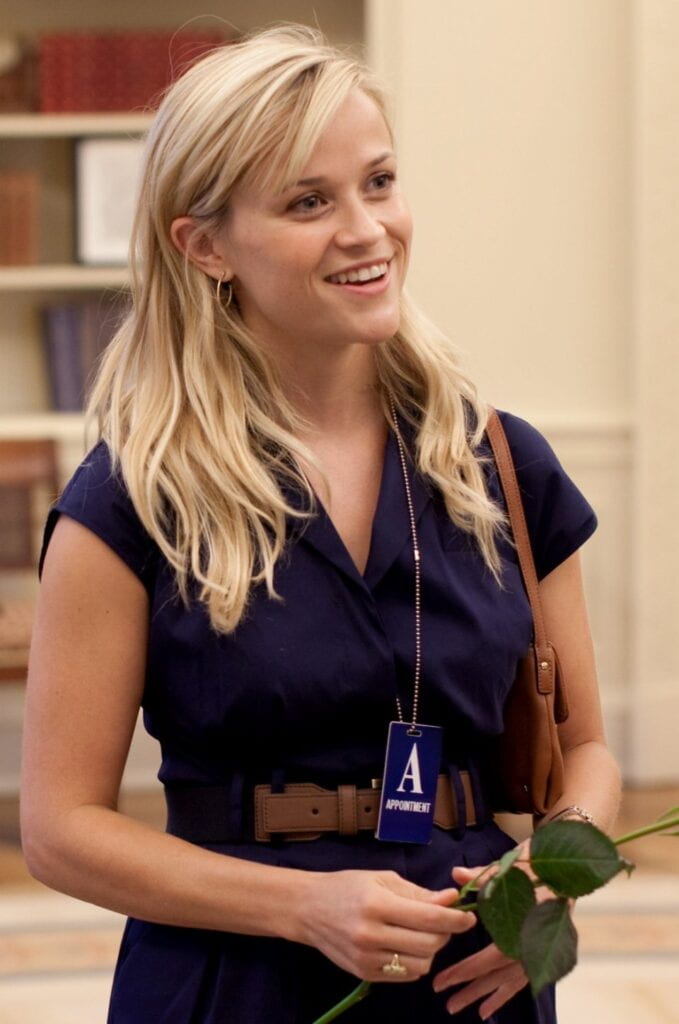
Why Reese Witherspoon’s Glamour speech should inspire us all
by Madi Mitts, Editorial Staff Writer
Reese Witherspoon’s Glamour 2015 Women of the Year Awards speech has once again taken the internet by storm. Its resurfacing is symbolic of the growing desire to properly represent women in film. The multiple tenets that Reese presents are vital in continuing the progress of women in this competitive industry, as well as the cultivation of new, young, and female talent.
She begins by noting how often in scripts she reads the line “What do we do now?”, and how this undermines women by showcasing them as particularly useless and merely there to push the plot further for the male character. In reality, no woman in any crisis situation “would have absolutely no idea what to do.”
She, along with plenty of other women in film, was perturbed by this misrepresentation of the complexity of women. After long attempts to get the industry’s attention on the subject of equal representation, she discovered that approach’s futility. Inspired by her mother, who said: “If you want something done honey, do it yourself,” she, along with her producer partner, Bruna Papandrea, began Pacific Standard Films with the mission of “creating opportunities for women in front of and behind the camera” (Hollywood Reporter). Reese and Bruna’s initiative illuminates how proving yourself through action is more productive and promotive of success than waiting for others to finally listen. If you have talent, a great story, and something to say, that will resonate with audiences regardless of gender, and eventually garner the attention of those who were once dismissive.
Building the company did not come easy for her and came with many risks. People in the industry were telling her that there was no market for female-led films and that her company would go under after a couple years. However, even after being warned that spending her own money to get the company going was a poor decision, she was resolute to do it anyways. Instead of listening to the nay-sayers and losing sight of the company’s mission, she chose to believe in what she was promoting and pushed forward despite the cost. However, this decision was not without good reason. Women driven films have worked in the past and will continue to do so in the future.
The same year that Pacific Standard Films was formed, The Hunger Games, a film whose leading lady is strong, decisive, and anything but the dingy, incompetent characters Reese had previously underlined, was dominating the box office. So, the investment entailed risk but was definitely worthwhile as it had already been proven that there was a large and profitable market for female-driven material, even long before The Hunger Games.
Reese’s decision proves to young and upcoming women filmmakers that despite what people may say, there is a strong market for what they are producing. Reese even encouragingly asked, “Wouldn’t it feel really good to prove them all wrong?”
Reese also talked about how she was an avid reader, and how she and her partner would tear through manuscripts, searching for cinematic gold. Due to her and her partner’s ferocity, they were able to acquire, in the first year, two manuscripts of future bestselling novels, Wild and Gone Girl. These would soon be award-winning and critically acclaimed films. This type of intellectual curiosity is important to note regardless of where you may fall in the entertainment industry. Curiosity is the one skill that we can all practice every moment of every day that will inform and better our future storytelling. Absorbing knowledge and inspiration across various mediums allow us to understand different perspectives and people, which is pivotal in making important and meaningful films.
Reese finished her speech noting how the misrepresentation of women in film is a window to the misrepresentation of women in industries across fields. Still, women in male-dominated fields are not receiving the support and recognition they deserve. In a New York Times article, Susan Chira interviewed multiple successful businesswomen, only to illuminate the disappointing truth that women who have dedicated years to their companies are still unable to become its CEOs. A Georgetown University study showed how women are still feeling a lack of “fit” in STEM-related careers, enough to switch out completely. In a 2016 TedTalk by Naomi McDougall-Jones, she noted that “studies show that the movies you watch don’t just affect your hobbies, they affect your career choices, your emotions, your sense of identity, your relationships, your mental health, even your marital status.” By encouraging women to write, produce, direct, and work in positions of power within the industry, despite the fear of failure, inadequacy, and discrimination, we are bound to see a change in not only the films we see on screen, but also a change in how women are viewed in our society, within other industries, and in how they view themselves.